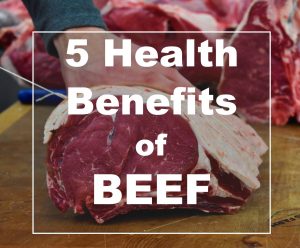Benefits of Meat
Meat has been a vital part of the human diet for centuries. In this article, we will explore the numerous benefits of including meat in our diet. From providing essential nutrients to supporting muscle growth, meat offers a wide range of advantages that contribute to a healthy lifestyle.
Key Nutrients in Meat
Meat is a rich source of essential nutrients that are crucial for our overall well-being. It is particularly abundant in high-quality proteins, which are essential for the growth, repair, and maintenance of body tissues. Proteins found in meat contain all the essential amino acids required by the human body.
Furthermore, meat is an excellent source of vitamins and minerals. It is particularly rich in vitamin B12, which is essential for the formation of red blood cells and proper neurological function. Other important vitamins found in meat include vitamin B6, niacin, and riboflavin. These vitamins play a vital role in energy production and the maintenance of a healthy immune system.
In addition to vitamins, meat is also a great source of minerals such as iron, zinc, and selenium. Iron is crucial for the transport of oxygen in the body, while zinc is essential for immune function and wound healing. Selenium acts as a powerful antioxidant, protecting our cells from damage caused by free radicals.
Protein and Muscle Growth
One of the primary benefits of meat consumption is its ability to support muscle growth. Protein, found abundantly in meat, provides the building blocks necessary for the development and repair of muscles. It contains all the essential amino acids required for muscle synthesis, making it an ideal protein source for athletes and individuals engaged in regular physical activity.
Moreover, meat protein is highly bioavailable, meaning that our bodies can efficiently absorb and utilize it. This makes meat an excellent choice for meeting daily protein requirements and promoting muscle recovery after intense workouts.
Weight Management and Satiety
Contrary to popular belief, including lean meats in a balanced diet can actually aid in weight management. Protein-rich foods like meat help increase feelings of fullness and satiety, reducing the likelihood of overeating. Additionally, the thermic effect of protein digestion requires more energy, which can contribute to a higher metabolic rate.
Furthermore, meat is a nutrient-dense food, meaning it provides a significant amount of essential nutrients while being relatively low in calories. This makes it an ideal choice for those looking to maintain a healthy weight without compromising on nutrition.
Meat and Brain Health
Meat consumption has also been linked to improved brain health. The high levels of vitamin B12 found in meat play a crucial role in maintaining proper neurological function. Vitamin B12 deficiency has been associated with cognitive decline and an increased risk of neurodegenerative diseases such as Alzheimer’s and dementia.
In addition to vitamin B12, meat also contains omega-3 fatty acids, which are essential for brain health. These fatty acids have been shown to support cognitive function and reduce the risk of mental decline.

In conclusion, meat offers a multitude of benefits that contribute to overall health and well-being. From providing essential nutrients to supporting muscle growth and brain health, the inclusion of meat in a balanced diet can have a positive impact on our lives. However, it is important to consume meat in moderation and choose lean cuts to reap its full benefits. Consult with a healthcare professional or registered dietitian to determine the appropriate amount of meat for your individual dietary needs.
Frequently Asked Questions about the Benefits of Meat
1. Is meat a good source of protein?
Yes, meat is an excellent source of high-quality protein. It contains all the essential amino acids needed for muscle growth and repair.
2. Does meat provide essential vitamins and minerals?
Absolutely! Meat is rich in important nutrients like iron, zinc, vitamin B12, and vitamin D, which are vital for various bodily functions.
3. Can meat help in maintaining a healthy weight?
Yes, lean meats like chicken and turkey can aid in weight management due to their high protein content, which promotes satiety and helps control appetite.
4. Does meat contribute to brain health?
Meat, especially fatty fish like salmon, is a great source of omega-3 fatty acids. These essential fats are beneficial for brain health and cognitive function.
5. Is meat important for muscle development?
Yes, meat is crucial for muscle development as it provides high-quality protein and essential amino acids necessary for building and repairing muscle tissue.
6. Can meat support a healthy immune system?
Absolutely! Meat contains various nutrients like zinc and vitamin C that play a key role in supporting a strong immune system and fighting off infections.
7. Does meat help in maintaining healthy bones?
Yes, meat is a good source of important minerals like calcium, phosphorus, and magnesium, which are essential for maintaining healthy bones and preventing osteoporosis.
8. Can meat provide energy for physical activities?
Definitely! Meat is a rich source of high-quality protein and healthy fats, which provide a sustainable source of energy for physical activities and exercise.
9. Does meat contribute to overall growth and development?
Yes, meat plays a vital role in overall growth and development, especially in children and teenagers, as it provides essential nutrients needed for proper development.
10. Can meat be part of a balanced diet?
Yes, meat can be included as part of a balanced diet, as it provides valuable nutrients. However, it’s important to choose lean cuts and practice moderation.




